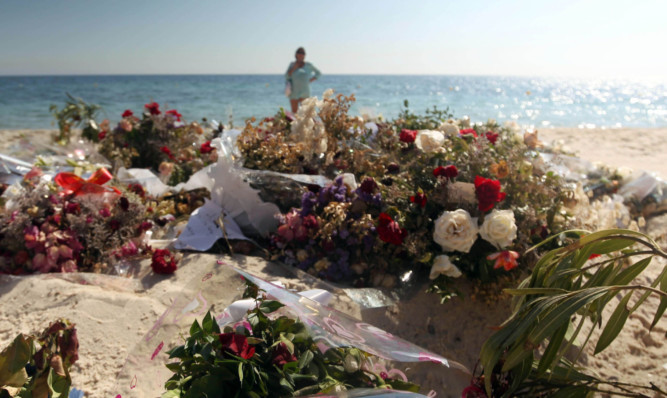It is hard to imagine the terror inflicted just a week ago upon young and old in the holiday resort of Sousse in Tunisia.
Try to envisage it. Lying on a sunbed in the comforting sunshine on a much-anticipated holiday and then without warning, a black-clad sinister figure emerges, shooting in a calculated and deliberate way, spraying bullets around and spreading unimaginable fear and anxiety.
Those who survived will never forget the horror of those first moments and for those who have lost members of their family, the images we have now seen on our television screens will forever be imprinted on their memories.
However, out of the maelstrom of these events it is necessary to try to make some sense.
Let us begin by sounding a note of caution. It is difficult not to feel an overwhelming sense of outrage and feel the compulsion that something must be done and now.
An instantaneous response is attractive but in the long term, is rarely advisable.
Pressure to act
The pressure of 24-hour news, trenchant newspaper editorials and the need to be seen doing something creates unsustainable pressure on politicians to respond immediately.
It is tempting to use language like “a full spectrum response”, as the Prime Minister did in the House of Commons, to set up yet another task force as the Home Office proposes and to consider the extent to which the criminal law may be amended in an effort to prevent a recurrence of the horror of Sousse.
Language is important. To use phrases such as “war against terror” only serves to provide the recognition movements such as Isis crave.
In a perversion of Islam, they regard themselves as being engaged in a “holy war”. To respond to their barbarism by echoing their own language only serves to play to their own prejudice.
This is not to deny there are continuing risks to the United Kingdom and its citizens.
In an open democracy such as ours there are inevitably soft targets. Those who lead Isis are sophisticated and ruthless. Why try to storm a building so well guarded as the House of Commons when you can achieve the front page headlines you crave by encouraging a young gullible student to inflict death and destruction on unsuspecting holidaymakers?
This week Parliament imposed a duty on schools and universities to identify students likely to be attracted to extremism and to take steps to dissuade them.
However, it is a legitimate question whether teachers and lecturers should have that responsibility or are suitably qualified to fulfil it.
There were suggestions opposed by Nick Clegg in the last Parliament that broadcasters had a duty to refrain from any words or pictures which might appear to endorse extremism. It is a legitimate question whether that duty would amount to censorship and damage the right of freedom of expression.
Understand our adversaries
So a measured response is required but what should it be?
First, understand our adversaries. They are not only Al Qaeda or Isis. They are not an army in a conventional sense. They are a movement with adherents and an ideology with believers. Second, make sure our three security services GCHQ, MI5 and MI6 are all properly resourced. There is more expected of them now than possibly ever before. They have publicly acknowledged their surveillance of a large number of people is continually being augmented by the return of British citizens who have been seduced into going to Iraq and Syria and are now returning home.
Third, reach out to our allies all over the world. Muslim countries such as Kuwait and Saudi Arabia have recently been subject to acts of terrorism. They have as compelling an interest as ourselves in protecting their citizens.
Cooperation is essential. We should go on sharing intelligence and pooling resources as far as possible.
Should such cooperation extend to the Assad regime in Syria which uses barrel bombs on its own citizens? Or to Russia, which tears up international law and annexes the territory of a sovereign state? I don’t pretend there is any answer to these questions but they must surely be on the table.
Fourth, review how the law may be changed to assist in the campaign against terrorism but do so in a considered way.
You must always remember the need to balance the twin principles of security and privacy. This is not an easy task but it is the duty of Government.
Fifth, engage with Muslim communities and their representatives all over the country but do so on a collaborative basis. Avoid slogans or soundbites which appear to ascribe responsibility for acts of terror to Muslims as a whole.
There is no silver bullet nor any quick fix. As the Prime Minister has rightly said, this is a campaign for the long term. But it is one we each can and should win.
